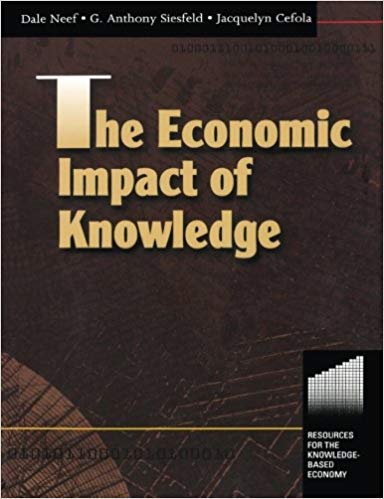: The Content of this book
This series provides resources for the Knowledge-Based Economy. What happens to our understanding of economics when the vast majority of people within our economy are employed to create ideas, solve problems, or market and sell services rather than to produce tangible goods? How do we measure non-financial “intangibles” such as human capital or the effect of R&D? This anthology explores how economists and public policy makers are re-thinking the way in which governments measure, monitor, and influence an economy in an unbounded global environment where output is largely intangible and organizations are becoming increasingly “non-national” in scope.Through a collection of seminal articles written by prominent business people, academics, and public policy makers, this three-part anthology examines the key issues surrounding the economic impact of knowledge-based growth, including: preparing for the effects of technological change; understanding the change in traditional economic theory; and how Research and Development will be affected.Who will be the global “knowledge police”? Most business people think of economics in terms of growth, interest rates, and inflation.
This book is unique in that it focuses on the economic impact of knowledge-based growth in order to provide business people with a bigger picture of the knowledge management case for action with their organizations. The most up-to-date and most relevant articles on the subject. It has a unique focus on the theme of knowledge, and is organized logically, with a foreword to introduce each section.
About the Author
Dale Neef is an author and management consultant specializing in strategic corporate policy and knowledge management, and is currently researching the subject of corporate integrity as a Visiting Fellow at The Center for Global Change and Governance at Rutgers University. He has worked for IBM and CSC, and was a fellow at Ernst & Young’s Center for Business Innovation, where he helped the firm to develop their knowledge management service line and wrote or edited several books on knowledge management and globalization. Over the past fifteen years he has worked with executives from more than forty companies on strategy development, corporate assessments, and strategic change initiatives. He earned his doctorate from Cambridge University, was a research fellow at Harvard, and along with radio commentary, speaker tours, and frequent contributions to journals, has written or edited numerous books on business, globalization and the changing economy, including: * E-Procurement: From Strategy to Implementation, (New York: Prentice Hall, May, 2001) – the Financial Times/Prentice Hall’s 3rd best-selling business book in 2001; * A Little Knowledge Is a Dangerous Thing: Understanding the Global, Knowledge-based Economy, (Boston: Butterworth-Heinemann, 1999); * The Economic Impact of Knowledge, Co-editor, (Boston: Butterworth-Heinemann, 1998); * The Knowledge-Based Economy, Editor, (Boston: Butterworth-Heinemann, 1997); * Enterprise Value in the Knowledge Economy: Measuring Performance in the Age of Intangibles, Co-editor, (OECD/Ernst & Young, 1997) These books have been recommended by the Harvard Business School and have been used as texts for courses at MIT, Birbeck/University of London, the University of Northern Texas, the University of Tennessee and George Mason University.
If you are interested in buying and reading this book ,please try its present link on Amazon :



















